Are you looking to replace a full arch of teeth?
Tooth loss can have a dramatic impact on your health and lifestyle quality. You don’t have to go through life without teeth. At Larsen Family Dental, we provide custom dentures and partials for our patients looking to replace a full arch of teeth.
Dentures and partials allow you to restore your smile’s appearance and give you the functionality that you desire from a full set of teeth.
When you are missing multiple teeth, your face can begin to sag due to the lack of support that your soft tissues have in your mouth. Additionally, you may experience bone loss in your jawbone. As a holistic dentist in Bountiful, UT, Dr. Larsen looks forward to providing you with restorative dentistry solutions to improve your smile and revitalize your oral health.

Dentures & Partials in Bountiful UT
To create our custom dentures and partials, we take dental impressions of your soft tissue to ensure that the set of teeth we make for you will fit securely into your smile. Additionally, we offer dental implant services for patients looking to decrease their chances of slippage with their new set of dentures.
Dentures can bring back your smile and help you chew food when you lose teeth. Dr. Larsen offers several different types of dentures to meet your needs. After a thorough dental assessment, he will present you with your options and the pros and cons of each.
Complete Dentures
Complete dentures can replace all of your teeth on the lower or upper jaw. Dr. Larsen will suggest them if you lose all your teeth in one jaw. These dentures sit on the gums and you can remove them for cleaning.
Complete dentures come in two types:
- Immediate Dentures: Dr. Larsen places these dentures right after removing your teeth. They help you avoid living without teeth while waiting for your gums to heal. However, they might need adjustments as your gums shrink and change shape.
- Conventional Dentures: After your gums heal, usually about 8 to 12 weeks after tooth removal, dentists fit you with these dentures. They fit better than immediate dentures because the gums have settled down.
Partial Dentures
When you still have some natural teeth, partial dentures can fill the gaps. These dentures anchor to your remaining teeth with a metal framework or plastic base. They prevent other teeth from shifting and help you chew better.
Partial dentures come in a few types:
- Removable Partial Dentures: You can take these out easily for cleaning. They usually have metal clasps that hold them in place.
- Fixed Partial Dentures: Also known as dental bridges, these dentures attach permanently to adjacent teeth. Dr. Larsen will cement them in place, so you don’t have to remove them for cleaning.
Implant-Supported Dentures
Implant-supported dentures offer a stable and secure fit. A dentist will place dental implants into your jawbone, and the dentures snap onto these implants. They provide excellent support, especially for the lower jaw.
There are a few types of implant-supported dentures:
- Bar-Retained Dentures: A thin metal bar attaches to a few implants, and the denture fastens onto the bar with clips or other attachments.
- Ball-Retained Dentures: Each implant has a metal ball, and the denture has sockets that snap onto these balls.
- Snap-In Dentures: Snap-in dentures offer the convenience of removable dentures with the stability of implants. They snap onto dental implants using connectors or attachments, providing a secure fit. You can easily remove them for cleaning, but they stay in place better than traditional dentures.
- All-on-4: This type of implant denture uses four strategically placed dental implants to support a fixed, non-removable dental prosthesis. All-on-4 implants are better suited for those looking for a permanent, highly functional, and natural-feeling solution.
Traditional Vs. Implant-Supported Dentures
Traditional dentures are probably what you think of when you think of dentures. They adhere to your gums with adhesive and are taken out at night while you’re sleeping. They’re removable and require soaking and cleaning to make sure that they stay at their best.
Implant-supported dentures use a few dental implants to secure the dentures in your mouth. They aren’t removable and are permanently fixed to dental implants. You don’t have to worry about adhesive or taking them out to be cleaned. You can brush them like you would normal teeth.
There are pros and cons to both options. Traditional dentures are quicker and don’t require surgery. They’re also cheaper than implant-supported dentures because they don’t require implants. However, they’ll need to be adjusted or replaced over time because your jawbone continues to deteriorate.
Implant-supported dentures take longer because dental implants have to be surgically placed. They’re also more expensive for this reason. However, there are benefits that don’t come with traditional dentures. The implants stop your jawbone from deteriorating, meaning they don’t have to be adjusted over time. You’re also able to take care of them like normal teeth. You don’t have to worry about removing them or getting the best adhesive to keep them in.
Frequently Asked Questions About Dentures
If you have questions about dentures, here we address some of the most commonly asked questions about dentures. Whether you’re considering dentures for the first time or have been wearing them for years, we can help you find the answers you need. Here are some common questions we receive regarding our dentures and partials:
How long do I have to wait after having my teeth pulled for a full set of dentures?
It’s very important to allow your gums and jaw time to heal following a tooth extraction. Typically, patients can begin using their dentures six to eight weeks following a tooth extraction. However, every patient is unique and should follow the specific timeline that Dr. Larsen will provide you for your healing.
Will it be obvious that I’m wearing dentures?
Our dentures are designed custom to meet the needs of your smile. Your dentures should appear natural and fit snuggly into your mouth. No one should be able to tell that you are wearing dentures unless you remove them in front of them.
How should I clean my dentures?
You should clean your dentures using a denture brush and denture cleaner. Do not use regular toothpaste on your dentures as this will decrease their longevity. Keep your dentures in denture solution or in the case of water while not in use to ensure they stay moist.
How long does it take to get used to dentures?
Dentures do feel different than normal teeth. It takes some time to get used to how they feel in your mouth. It usually takes around two weeks to a month for you to feel completely comfortable with your dentures. Even with advancements, dentures are still a bit bulkier than normal teeth, making them feel weird at first.
How many hours a day should I wear dentures?
If you have implant-supported dentures, you wear them all the time and they’re never removed. With traditional dentures, you shouldn’t wear them constantly. Wearing them for too long irritates your gums and causes discomfort. Take them out when you’re sleeping to give these soft tissues a chance to rest.
Are there foods I have to avoid with dentures?
With implant-supported dentures, you should be able to eat just about anything. You have to be more careful with traditional dentures. Steak can be difficult to chew even for those with natural teeth. You also want to avoid eating foods like fresh apples or carrots, corn on the cob, or popcorn. For best results, make sure you’re chewing your food on both sides of your mouth to keep your dentures even.
Schedule Your Appointment for Dentures in Bountiful, UT
If you are interested in learning more about dentures in Bountiful, UT, schedule an appointment with Dr. Larsen at his local dentist office. You can contact our office at 801-228-0155 or you can request an appointment online.
